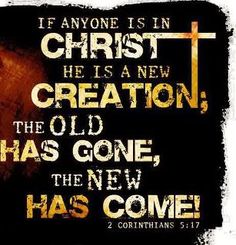The Difference Between The Ministry Of The Evangelist, & The Ministry Of Evangelism
The concept of the “five-fold ministry” is derived from Ephesians 4:11-12, where the apostle Paul describes certain leadership roles within the Church. These roles are apostles, prophets, evangelists, pastors, and teachers. Here’s a biblical distinction between the specific role of the Evangelist within the five-fold ministry for the equipping of the saints and the broader Ministry of Evangelism focused on reaching the lost in the community:
![1 Timothy 2:4 - NASB [1] First of all, then, I urge that requests, prayers, intercession, and thanksgiving be made in behalf of all people, [2] for kings and all who are in authority, so that we may lead a tranquil and quiet life in all godliness and dignity. [3] This is good and acceptable in the sight of God our Savior, [4] who wants all people to be saved and to come to the knowledge of the truth. [5] For there is one God, and one mediator also between God and mankind, the man Christ Jesus, [6] who gave Himself as a ransom for all, the testimony given at the proper time. [7] For this I was appointed as a preacher and an apostle ( I am telling the truth, I am not lying), as a teacher of the Gentiles in faith and truth.](https://reachnz.org/wp-content/uploads/2022/03/cropped-Acts-2-1024x340.jpg)
1 Timothy 2:4 – NASB
[1] First of all, then, I urge that requests, prayers, intercession, and thanksgiving be made in behalf of all people, [2] for kings and all who are in authority, so that we may lead a tranquil and quiet life in all godliness and dignity. [3] This is good and acceptable in the sight of God our Savior, [4] who wants all people to be saved and to come to the knowledge of the truth. [5] For there is one God, and one mediator also between God and mankind, the man Christ Jesus, [6] who gave Himself as a ransom for all, the testimony given at the proper time. [7] For this I was appointed as a preacher and an apostle ( I am telling the truth, I am not lying), as a teacher of the Gentiles in faith and truth.
Ministry of the Evangelist within the Five-Fold Ministry

- Role: The Evangelist within the five-fold ministry is specifically mentioned as a leadership role within the Church. The primary role of the Evangelist is to equip the saints, which means nurturing and building up believers within the existing Christian community.
- Function: The Evangelist, in this context, is focused on internal ministry. They may engage in preaching, teaching, and evangelistic efforts within the congregation to foster spiritual growth, maturity, and a deeper understanding of the Gospel among believers.
- The Primary Function of the five-fold evangelist is to equip the saints FOR THE WORK OF EVANGELISM. They are like the coach of the football team – the coach’s role is to teach them how best to play football; the evangelist’s role is to teach the saints how to effectively evangelise.
- Biblical Basis: Ephesians 4:11-12 says, “So Christ himself gave the apostles, the prophets, the evangelists, the pastors and teachers, to equip his people for works of service, so that the body of Christ may be built up.”
Ministry of Evangelism to Reach the Lost in the Community
- Role: The Ministry of Evangelism, while encompassing the work of the Evangelist, is a broader concept that involves the collective efforts of the entire Church. It focusses on reaching out to those who are outside the Christian community, seeking to bring the message of salvation to the lost.
- Function: The Ministry of Evangelism involves various outreach activities, missions, and initiatives aimed at sharing the Gospel with non-believers. It emphasizes external engagement and the spreading of the Good News beyond the boundaries of the existing Christian congregation.
- Biblical Basis: The biblical foundation for the Ministry of Evangelism is rooted in the Great Commission given by Jesus in Matthew 28:19-20, where believers are instructed to go and make disciples of all nations.
- Evangelism is for every Disciple. You do not have to be an evangelist to evangelise. The ministry of evangelism is for every disciple of Christ. Stephen was made a Decon, he was never called an Evangelist, yet he was full of the Holy Spirit and went on the streets and preached the gospel with signs following, and was stoned to death for it. Acts 6:3-8 Acts 6:51-59
- Unity: An Evangelist on his own can only reach a few people. However he knows that if he can equip the Church, then together they can reach thousands. Deuteronomy 32:29-31
In summary, the Evangelist within the five-fold ministry primarily focusses on equipping and building up the existing body of believers within the Church. On the other hand, the Ministry of Evangelism is a broader endeavour that involves the entire Church in reaching out to the community and beyond to share the Gospel with those who have not yet embraced it. Both are crucial aspects of the Church’s mission, and they work together to fulfil the mandate of spreading the message of salvation.
- The Ministry of the Evangelist is for some
- The Ministry of Evangelism is for all Disciples
God Calles Followers of Yeshua to Become His Disciples
Luke 14:23-28 NASB
[23] And the master said to the slave, ‘Go out into the roads and the hedges and press upon them to come in, so that my house will be filled. [24] For I tell you, none of those men who were invited shall taste my dinner.’” [25] Now large crowds were going along with Him, and He turned and said to them, [26] “If anyone comes to Me and does not hate (love less) his own father, mother, wife, children, brothers, sisters, yes, and even his own life, he cannot be My disciple. [27] Whoever does not carry his own cross and come after Me cannot be My disciple. [28] For which one of you, when he wants to build a tower, does not first sit down and calculate the cost, to see if he has enough to complete it?
The terms “follower of Christ” and “disciple” are often used interchangeably, but they can carry nuanced meanings in different contexts. In a general sense, both phrases describe individuals who have chosen to follow Jesus Christ and learn from His teachings. However, there are distinctions that can be drawn based on how the terms are used in various biblical and theological contexts:
Follower of Christ:
- Definition: A follower of Christ is someone who has been born again having made a personal commitment to follow Jesus, embrace His teachings, and seek to live according to His example. This term emphasizes the decision to align one’s life with the principles and values taught by Jesus.
- Biblical Basis: The concept of being a follower of Christ is rooted in Jesus’ invitation to people to follow Him. For example, in Matthew 16:24, Jesus says, “If anyone would come after me, let him deny himself and take up his cross and follow me.”
Disciple:
- Definition: A disciple, in a more specific sense, refers to a learner or a student who is not only a born again follower but is also actively engaged in a process of learning and being shaped by the teachings and practices of the master, in this case, Jesus Christ.
- Biblical Basis: The term “disciple” is used in the Gospels to describe those who followed Jesus during His earthly ministry. For instance, in Matthew 28:19-20, Jesus gives the Great Commission, instructing His disciples to go and make disciples of all nations.
- A Disciple is a follower who has answered God’s call to become His Disciple. “If anyone comes to Me and does not hate (love less) his own father, mother, wife, children, brothers, sisters, yes, and even his own life, he cannot be My disciple. Whoever does not carry his own cross and come after Me cannot be My disciple. Luke 14:25-27
While the terms are related, the distinction lies in the depth of commitment and engagement with the teachings of Jesus. Every disciple is a follower of Christ, but not every follower may fully embrace the role of a disciplined learner. Discipleship involves a more intentional and committed journey of spiritual growth, transformation, and learning from the teachings and example of Jesus.
Summary

In summary, a follower of Christ is someone who has chosen to align their life with Jesus, while a disciple is a follower who actively engages in a process of learning and growing in their understanding of and conformity to Christ’s teachings. The distinction is more qualitative, emphasising the depth of commitment and the active pursuit of spiritual formation in the life of a disciple. God calls a sinner to become His follower. Then He calls His followers to become His disciple.
The question you need to answer for yourself is… Are you His follower or His disciple? Have you heard, and answered His call to become His disciple?”
